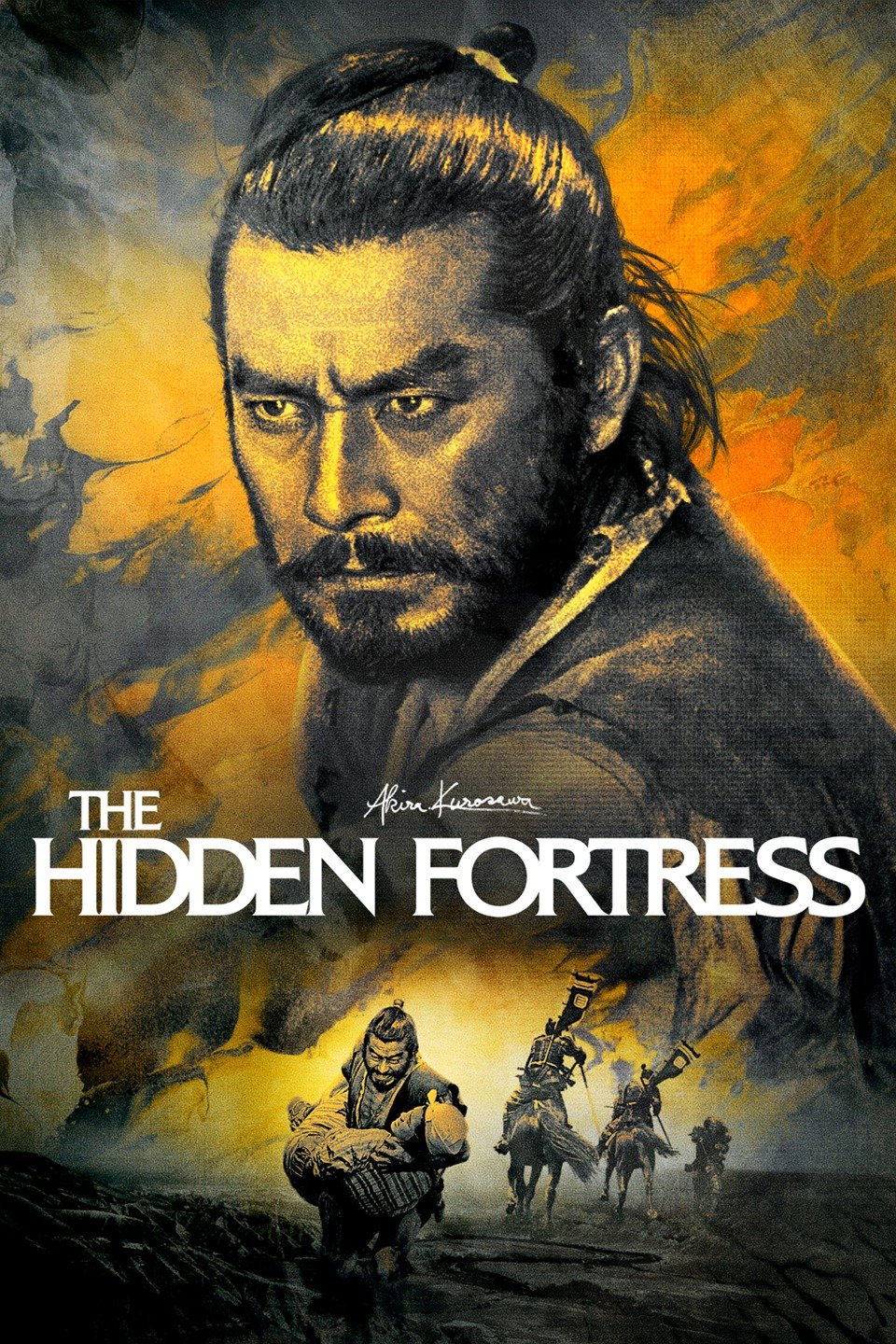
While it might not be latent among Kurosawa acolytes, The Hidden Fortress wasn’t a crossover export when it was released in the U.S. Despite its acclaim, it isn’t exulted alongside Seven Samurai, Yojimbo and Rashomon as one of his masterworks. Which is a pity because it heralded two innovations for Kurosawa- Tohoscope widescreen photography and Perspecta directional sound.
By George Lucas’ admission, Tahei and Matashichi are the archetypes for the bickering duo of C3PO and R2-D2. The fundamental difference is the former twosome are warmongering opportunists who profiteer from the civil unrest around them. They may not be dignified but they are cynically jocose comic reliefs (“Not grave digging again” should be accompanied by the vaudevillian, melancholy trombone sound effect). They bumble around the feudalistic landscape like amok Abbott and Costello. The film is an affidavit that Akira Kurosawa was also proficient at idyllic, broad raillery as The Hidden Fortress is a blissfully spangly, Junoesque romp.
The castle remains of the Akizuki Clan is an opulent set and it photographed to be fully immersive. This was Kurosawa’s first foray into widescreen and it is undeniably, gorgeously hypermetropic. Meanwhile, the always electrifying Toshiro Mifune is General Rokurota Makab who enigmatically materializes with a strategy on how to despoil the gold. The funniest example of his stealth is when he suddenly appears at the bottom of a fortress while Tahei and Matashichi desperately scamper up a hill.

Each of Mifune’s characters for Kurosawa have been enshrouded with an incognito past which is initially a stoic puzzle to the audience. Like most Kurosawa pictures, it soars at a breakneck pace. Unlike the family-friendly Star Wars, the Princess’ double is explicitly beheaded during her act of subterfuge and it instills an imperiled sense of danger to the high-octane adventure.
The princess herself is humbled by her bourgeois interactions. She is coerced into being a “mute” during the pilgrimage and therefore she must squelch her tomboyish outspokenness. She witnesses a human-trafficking ring in one of the Yamana territories but he is forbidden to interfere by Makabe (“Your kindness will harm you.”).
In any other mainstream, populist film, Tahei and Matashichi would solely be one-dimensional dullards. However, they cleverly concoct the border passage and they are not bamboozled by Makabe’s assertions that Princess Yuki is someone of non-royal heritage. A spear duel between Mifune and General Tadokoro is blisteringly exciting without the slightest shed of blood. In fact, the skirmish is more about a honorable defeat and emasculation among seasoned warriors than cold-blooded vengeance.
Follow me @ https://letterboxd.com/heatherdurden85/
